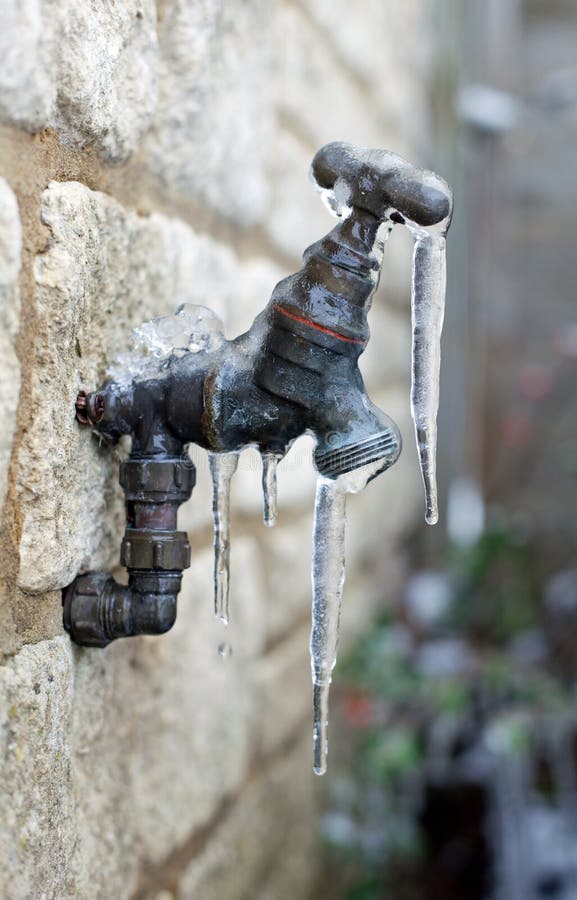On this page further down you will discover a good deal of quality expertise pertaining to How To Avoid Freezing Pipes.

Winter can wreak havoc on your pipes, especially by freezing pipelines. Below's exactly how to prevent it from taking place and what to do if it does.
Intro
As temperature levels drop, the threat of frozen pipelines rises, possibly resulting in expensive repair work and water damage. Comprehending how to avoid frozen pipes is vital for house owners in chilly environments.
Prevention Tips
Insulating susceptible pipelines
Cover pipes in insulation sleeves or use warmth tape to secure them from freezing temperature levels. Focus on pipes in unheated or external areas of the home.
Home heating techniques
Keep interior areas effectively warmed, especially areas with plumbing. Open up closet doors to allow warm air to circulate around pipes under sinks.
Exactly how to recognize icy pipelines
Seek lowered water circulation from taps, uncommon smells or sounds from pipelines, and noticeable frost on subjected pipelines.
Long-Term Solutions
Architectural changes
Take into consideration rerouting pipes away from outside wall surfaces or unheated locations. Include added insulation to attic rooms, basements, and crawl spaces.
Updating insulation
Invest in top notch insulation for pipes, attic rooms, and wall surfaces. Correct insulation helps maintain consistent temperature levels and reduces the risk of frozen pipes.
Shielding Exterior Pipes
Garden tubes and outdoor faucets
Detach and drain pipes yard pipes prior to winter season. Set up frost-proof faucets or cover exterior taps with insulated caps.
Recognizing Icy Pipelines
What causes pipelines to ice up?
Pipes freeze when revealed to temperature levels listed below 32 ° F (0 ° C) for prolonged durations. As water inside the pipes freezes, it expands, taxing the pipe wall surfaces and possibly triggering them to rupture.
Dangers and damages
Frozen pipelines can lead to water disturbances, property damages, and pricey fixings. Ruptured pipes can flood homes and trigger comprehensive structural damage.
Signs of Frozen Pipes
Recognizing icy pipes early can avoid them from breaking.
What to Do If Your Pipes Freeze
Immediate actions to take
If you suspect frozen pipes, maintain taps open to soothe pressure as the ice melts. Make use of a hairdryer or towels taken in warm water to thaw pipes gradually.
Verdict
Protecting against frozen pipes calls for positive steps and quick reactions. By comprehending the causes, indicators, and safety nets, house owners can secure their plumbing during winter.
Helpful Tips to Prevent Frozen Pipes this Winter
UNDERSTANDING THE BASICS: WHY PIPES FREEZE AND WHY IT’S A PROBLEM
Water freezing inside pipes is common during the winter months, but understanding why pipes freeze, and the potential problems it can cause is crucial in preventing such incidents. This section will delve into the basics of why pipes freeze and the associated problems that may arise.
THE SCIENCE BEHIND FROZEN PIPES
When water reaches freezing temperatures, it undergoes a physical transformation and solidifies into ice. This expansion of water as it freezes is the primary reason pipes can burst. As the water inside the pipe freezes, it expands, creating immense pressure on the walls. If the pressure becomes too great, the pipe can crack or rupture, leading to leaks and water damage.
FACTORS THAT CONTRIBUTE TO PIPE FREEZING
- Low Temperatures: Extremely cold weather, especially below freezing, increases the risk of pipes freezing.
- Uninsulated or Poorly Insulated Pipes: Pipes located in unheated areas, such as basements, crawl spaces, or attics, are more prone to freezing. Insufficient insulation or lack of insulation altogether exacerbates the problem.
- Exterior Wall Exposure: Pipes running along exterior walls are susceptible to freezing as they encounter colder temperatures outside.
- Lack of Heating or Temperature Regulation: Inadequate heating or inconsistent temperature control in your home can contribute to frozen pipes.
PROBLEMS CAUSED BY FROZEN PIPES
WHY CERTAIN PIPES ARE MORE PRONE TO FREEZING
- Pipe Bursting: As mentioned earlier, the expansion of water as it freezes can cause pipes to burst, resulting in significant water damage.
- Water Damage: When pipes burst, it can lead to flooding and water damage to your property, including walls, ceilings, flooring, and personal belongings.
- Structural Damage: Prolonged exposure to water from burst pipes can compromise the structural integrity of your home, leading to costly repairs.
- Mold and Mildew Growth: Excess moisture from water damage can create a favorable environment for mold and mildew growth, posing health risks to occupants.
- Disrupted Water Supply: Frozen pipes can also result in a complete or partial loss of water supply until the issue is resolved.
https://busybusy.com/blog/helpful-tips-to-prevent-frozen-pipes-this-winter/
- Location: Pipes located in unheated or poorly insulated areas, such as basements, crawl spaces, attics, or exterior walls, are at higher risk of freezing.
- Exterior Pipes: Outdoor pipes, such as those used for irrigation or exposed plumbing, are particularly vulnerable to freezing as they are directly exposed to the elements.
- Supply Lines: Pipes that carry water from the main water supply into your home, including the main water line, are critical to protect as freezing in these lines can affect your entire plumbing system.
- Underground Pipes: Pipes buried underground, such as those connected to sprinkler systems or outdoor faucets, can be susceptible to freezing if not properly insulated.

I was shown that article about Preventing and dealing with frozen pipes from an acquaintance on another site. Liked our piece? Please share it. Let another person discover it. Thanks a bunch for your time. Come back soon.
Visit My Website
Comments on “Protecting Against Frozen Plumbing in Winter: Professional Advice”